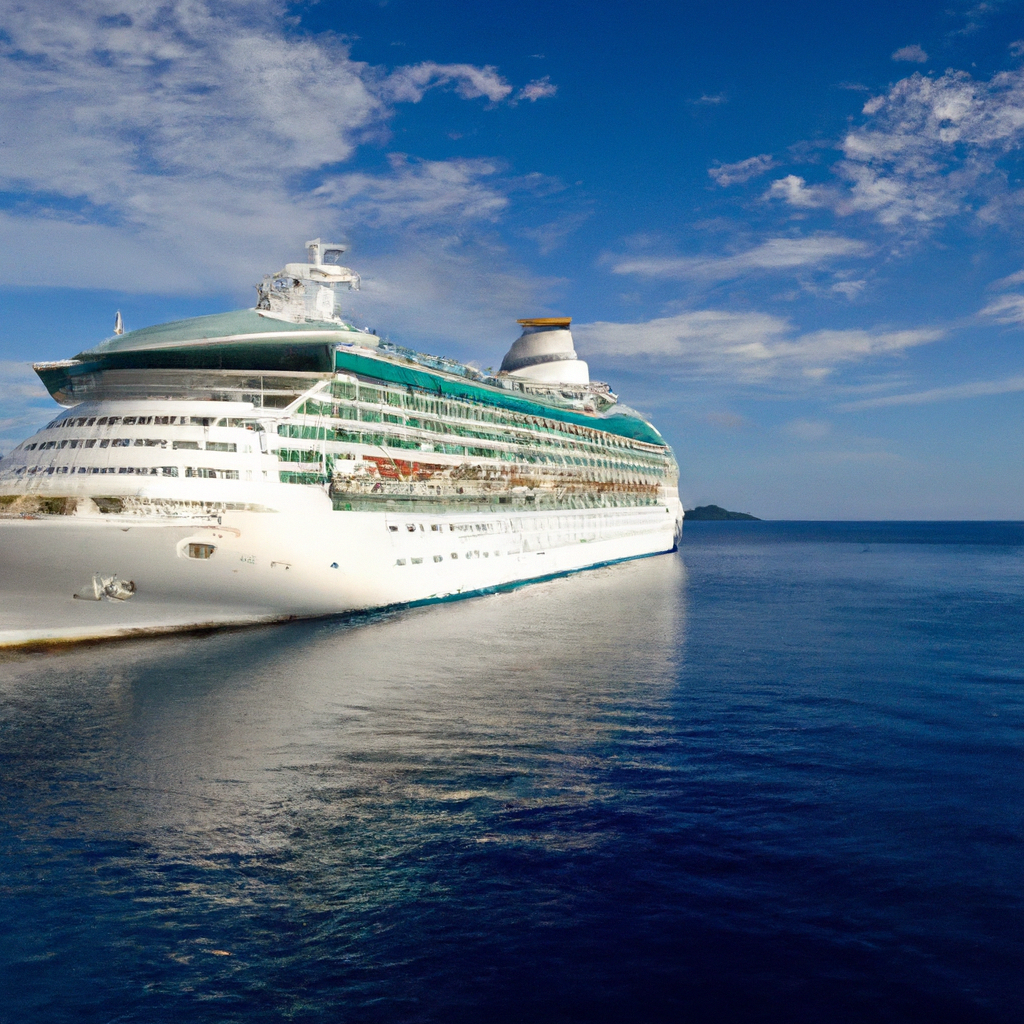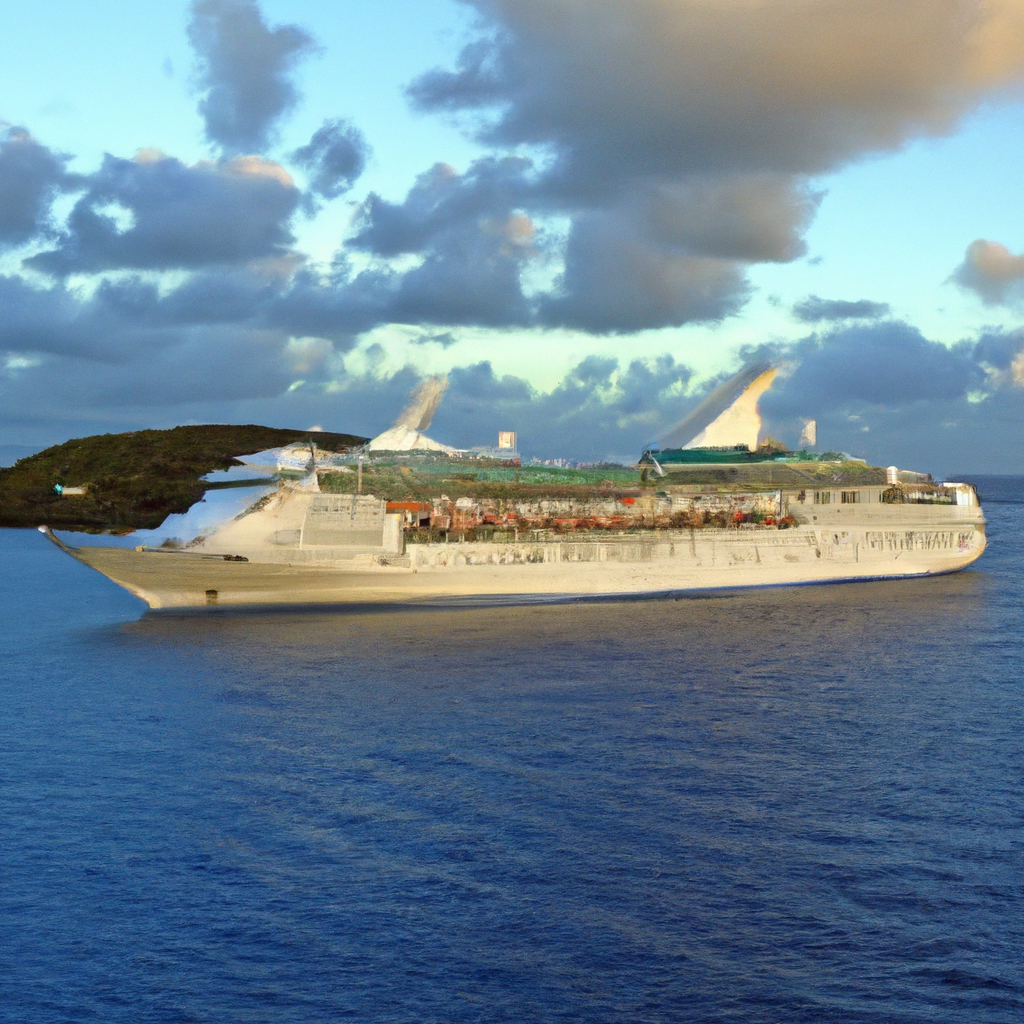
Are you a passionate traveler looking for sustainable cruise travel ideas? Look no further! In this article, we will explore innovative and eco-friendly ways to enjoy your cruise while minimizing your environmental impact. From exploring destinations with a focus on conservation to participating in onboard sustainability initiatives, we’ve got you covered. So pack your bags and get ready for a guilt-free and unforgettable cruise experience.
Eco-friendly destinations
Choosing sustainable destinations
When planning a cruise vacation, it’s essential to consider eco-friendly destinations. Look for places that prioritize sustainability and demonstrate a commitment to protecting the environment. Some popular sustainable cruise destinations include Norway, Costa Rica, Alaska, and the Galapagos Islands. These destinations offer breathtaking natural beauty and opportunities to engage in eco-conscious activities.
Supporting local communities
One of the key aspects of sustainable travel is supporting local communities. When choosing a destination, opt for places where the local economy benefits from tourism. Look for cruise itineraries that include stops at smaller ports and encourage interaction with local businesses. By purchasing souvenirs, dining at local restaurants, and booking excursions from local guides, you can directly contribute to the economic well-being of the communities you visit.
Protecting marine life
Marine life conservation should be a priority for any eco-conscious traveler. Seek out cruise itineraries that incorporate efforts to protect marine ecosystems. Some cruise lines partner with marine organizations to promote ocean conservation and conduct research on marine life. By choosing cruises that prioritize marine life protection, you can make a positive impact and contribute to the long-term preservation of our oceans.
Green cruise ships
Fuel-efficient ships
One of the primary considerations when evaluating the eco-friendliness of a cruise ship is its fuel efficiency. Look for ships that optimize fuel consumption and adopt advanced technologies to reduce emissions. Some cruise lines invest in modern engines and hull designs that promote fuel efficiency, minimizing their carbon footprint. Choosing a fuel-efficient ship can significantly contribute to reducing the environmental impact of your cruise.
Alternative energy sources
Another aspect of green cruise ships is the use of alternative energy sources. Some cruise lines are incorporating renewable energy technologies such as solar panels and wind turbines to generate electricity on board. These initiatives help to reduce the reliance on fossil fuels and contribute to a more sustainable cruise experience. Traveling on ships that embrace alternative energy sources can inspire others in the industry to follow suit and reduce their environmental impact.
Waste management systems
Proper waste management is crucial for maintaining environmental sustainability on cruise ships. Look for cruise lines that implement comprehensive waste management systems. These systems aim to minimize waste production, promote recycling, and properly dispose of any waste generated on board. By choosing a cruise line with effective waste management practices, you are actively supporting a greener and cleaner cruising industry.
Water conservation measures
Conserving water is another important aspect of eco-friendly cruise travel. Look for cruise ships that implement water-saving measures such as low-flow faucets and showerheads, as well as water recirculation systems. Additionally, some cruise lines have advanced wastewater treatment systems to ensure that any discharged water meets strict environmental standards. By choosing a cruise line that prioritizes water conservation, you are contributing to the preservation of this valuable resource.

Eco-conscious activities
Nature excursions
One of the best ways to engage with nature during your cruise is by participating in nature excursions. Look for cruise itineraries that offer opportunities for hikes, wildlife viewing, and exploring protected areas. These activities allow you to experience the beauty of natural landscapes while promoting sustainable tourism practices. Remember to always respect the environment, follow designated trails, and adhere to any guidelines provided by local authorities.
Wildlife conservation projects
If you are passionate about wildlife conservation, choose a cruise that supports wildlife conservation projects. Some cruise lines collaborate with organizations dedicated to protecting endangered species and their habitats. These projects may involve monitoring wildlife populations, conducting research, and raising awareness about conservation efforts. By participating in these projects, you can actively contribute to the preservation of our planet’s precious biodiversity.
Volunteering opportunities
For a more immersive sustainable travel experience, consider cruises that provide volunteering opportunities. These cruises often offer the chance to engage in meaningful community projects, such as beach clean-ups or habitat restoration initiatives. Volunteering not only allows you to make a positive impact on the local environment but also provides a deeper understanding of the community and its environmental challenges.
Educational programs
Many cruise lines now offer educational programs that focus on sustainability and environmental conservation. These programs may include lectures, workshops, and interactive activities designed to educate passengers about the importance of protecting our planet. By participating in these educational programs, you can gain valuable knowledge about sustainability practices and be inspired to make more environmentally conscious choices in your everyday life.
Sustainable dining options
Farm-to-table cuisine
When it comes to dining on a cruise ship, consider choosing a cruise line that emphasizes farm-to-table cuisine. This means that the food served on board is sourced locally and supports sustainable farming practices. By opting for farm-to-table dining options, you are not only enjoying fresh and delicious meals but also supporting local farmers and reducing the carbon footprint associated with food transportation.
Local and organic food
Another way to support sustainable dining on cruises is by choosing options that focus on local and organic food. Look for cruise lines that prioritize sourcing ingredients from local suppliers and offer organic and sustainably produced food items. By consuming local and organic food, you are supporting environmentally friendly farming practices and reducing the use of harmful pesticides and fertilizers.
Vegetarian and vegan options
For those who follow a vegetarian or vegan lifestyle, selecting a cruise line that offers a variety of plant-based dining options is essential. By choosing vegetarian and vegan meals, you are significantly reducing the environmental impact associated with meat production. Cruises that cater to vegetarian and vegan diets provide delicious and sustainable dining choices for passengers with these dietary preferences.
Reducing food waste
Food waste is a significant sustainability challenge in the cruise industry. Look for cruise lines that actively address this issue by implementing strategies to reduce food waste. Some measures include offering smaller portion sizes, encouraging passengers to take only what they can eat, and donating excess food to local communities. By supporting cruise lines that actively work to reduce food waste, you are contributing to a more sustainable dining experience.

Responsible shopping
Supporting fair trade
When shopping during your cruise, it’s important to support fair trade products. Fair trade ensures that producers in developing countries receive fair wages and work under safe and ethical conditions. Look for souvenirs and products that carry fair trade certifications, which guarantee that the items were made with respect for both people and the planet. By choosing fair trade products, you are promoting social and environmental justice.
Choosing sustainable souvenirs
Instead of purchasing mass-produced trinkets, consider buying sustainable souvenirs that reflect the local culture and environment. Look for items made from recycled or upcycled materials, and support local artisans and craftsmen. By choosing sustainable souvenirs, you are not only bringing home unique and meaningful mementos but also supporting local economies and encouraging the use of eco-friendly materials.
Avoiding products made from endangered species
It is vital to avoid purchasing products made from endangered species when shopping on your cruise. This includes products made from ivory, coral, certain types of wood, or any other materials sourced from endangered species or protected ecosystems. By refusing to purchase these items, you are taking a stand against the illegal wildlife trade and helping protect fragile ecosystems and endangered species.
Minimizing single-use plastics
Responsible shopping also involves minimizing the use of single-use plastics. Look for items that are packaged using sustainable materials or packaged with minimal waste. When purchasing drinks, carry a reusable water bottle and refuse single-use plastic straws. By reducing your consumption of single-use plastics, you are contributing to the conservation of our oceans and reducing plastic pollution.
Carbon offsetting
Understanding carbon offsetting
Carbon offsetting is a practice that allows individuals and businesses to compensate for their carbon emissions by investing in projects that reduce carbon dioxide in the atmosphere. These projects may include reforestation, renewable energy initiatives, or methane capture projects. Carbon offsetting helps to mitigate the environmental impact of certain activities, such as air travel or cruising, by balancing out the emissions generated.
Supporting carbon offset projects
When embarking on a cruise, consider supporting carbon offset projects to neutralize your carbon footprint. Many cruise lines offer options to purchase carbon offsets when booking your trip. These funds are then invested in projects aimed at reducing greenhouse gas emissions. By supporting these projects, you are actively contributing to the fight against climate change and promoting a more sustainable cruising industry.
Calculating and offsetting your cruise carbon footprint
To calculate your cruise carbon footprint, consider factors such as the distance traveled, the size of the ship, and the fuel consumption. Various online tools can help you estimate the emissions associated with your cruise. Once you have calculated your carbon footprint, you can choose to offset it by investing in carbon offset projects. This allows you to take responsibility for the environmental impact of your cruise and actively work towards a more sustainable future.

Community engagement
Cultural exchange programs
Engaging with local communities and their cultures is an important aspect of sustainable travel. Look for cruise lines that offer cultural exchange programs, providing opportunities to interact with local communities and learn about their traditions, language, and way of life. These programs foster mutual respect and understanding, allowing you to contribute positively to the communities you visit while gaining a deeper appreciation for their culture.
Participating in local initiatives
When cruising to different destinations, make an effort to participate in local initiatives and events that promote sustainable development and community well-being. These initiatives may include beach clean-ups, conservation projects, or local festivals. By actively engaging in these activities, you can contribute to the improvement of the communities you visit and forge meaningful connections with the local population.
Supporting community development
Another way to engage with local communities is by supporting community development projects. Many cruise lines have initiatives in place that focus on educational programs, infrastructure improvements, and economic development in the areas they visit. By choosing a cruise line with a genuine commitment to community development, you are contributing to the long-term well-being of the communities you encounter during your cruise.
Environmental education
Onboard sustainability lectures
To raise awareness about environmental conservation, many cruise lines now offer onboard sustainability lectures. These lectures cover a wide range of topics, including marine conservation, climate change, and sustainable travel practices. By attending these lectures, you can gain valuable knowledge from experts in the field and learn practical steps you can take to reduce your environmental impact.
Educational workshops and activities
In addition to lectures, cruise ships often offer educational workshops and activities related to sustainability and environmental conservation. These workshops may include hands-on experiences, demonstrations, and interactive activities that engage passengers in learning about the natural world. Participating in these workshops can deepen your understanding of environmental issues and inspire you to incorporate sustainable practices into your everyday life.
Promoting marine conservation awareness
Many cruise lines actively promote marine conservation awareness as part of their onboard programs. This includes providing information about the importance of protecting marine ecosystems, highlighting endangered species, and offering opportunities to participate in conservation efforts. By actively engaging in these programs, you can become a more informed and responsible traveler, actively contributing to the preservation of our oceans.

Cruise line sustainability policies
Researching cruise line practices
Before booking a cruise, it is important to research the sustainability practices of different cruise lines. Look for companies that prioritize environmental protection, provide transparency about their practices, and demonstrate a commitment to sustainability. Researching cruise line policies allows you to make an informed choice that aligns with your values and supports companies that are actively working towards a more sustainable cruising industry.
Choosing environmentally responsible companies
When selecting a cruise line, choose companies that have established environmental initiatives and sustainability goals. These may include commitments to reduce emissions, limit waste production, and protect biodiversity. Look for industry certifications such as the Cruise Lines International Association’s (CLIA) Environmental Standards Program, which recognizes cruise lines that meet strict environmental standards. By choosing environmentally responsible companies, you are supporting their sustainability efforts and encouraging others to follow suit.
Tips for responsible cruising
Packing sustainably
When preparing for your cruise, remember to pack sustainably. Opt for reusable toiletry containers instead of single-use travel-sized products. Choose clothing made from sustainable materials, such as organic cotton or recycled fibers. Pack a reusable water bottle, shopping bag, and utensils to minimize your consumption of single-use plastics. By packing sustainably, you can reduce the environmental impact associated with your travel.
Choosing eco-friendly shore excursions
When selecting shore excursions, choose options that prioritize eco-friendly practices. Look for excursions that support local conservation efforts, promote responsible wildlife viewing, and engage in sustainable tourism practices. Consider activities such as hiking, kayaking, or snorkeling that allow you to experience nature firsthand and minimize your environmental footprint. By consciously selecting eco-friendly excursions, you can enjoy unforgettable experiences while minimizing your impact on the environment.
Conserving energy and water onboard
Another way to be a responsible cruiser is by conserving energy and water onboard the ship. Practice simple actions such as turning off lights and air conditioning when leaving your cabin, and limit your use of hot water for showers. Reuse towels rather than requesting new ones each day, and minimize the use of electronic devices and chargers when not needed. By being mindful of your energy and water consumption, you can help reduce the ship’s overall environmental impact.
Reducing waste and recycling
Reducing waste and recycling play a significant role in responsible cruising. Dispose of any waste in the designated recycling bins and avoid throwing recyclable materials into the regular trash. Utilize onboard recycling facilities and separate your waste accordingly. Reduce single-use item consumption by opting for reusable alternatives such as shopping bags and water bottles. By actively practicing waste reduction and recycling, you are contributing to a cleaner and more sustainable cruising environment.
By considering sustainable destinations, supporting local communities, protecting marine life, choosing eco-friendly cruise ships, engaging in eco-conscious activities, dining sustainably, shopping responsibly, offsetting carbon emissions, engaging with communities, promoting environmental education, researching cruise line sustainability policies, and adopting responsible cruising tips, you can ensure that your cruise experience is not only enjoyable but also environmentally friendly. By making conscious choices during your cruise, you have the power to make a positive impact on the planet and inspire others to embrace sustainable travel practices.




